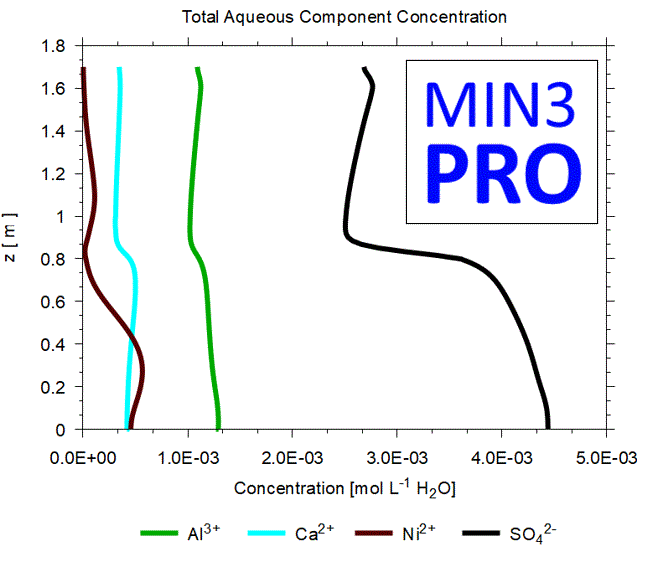
MIN3Pro Short Course - Halifax Sept 15-16
MIN3Pro Short Course - Halifax, Nova Scotia
September 15 & 16, 2024
Reactive Transport Modelling of Mining Applications with MIN3Pro
- Sunday September 15 and Monday September 16, 9 AM to 5 PM
- Mount Saint Vincent University Campus, Halifax, Nova Scotia
Registration:
https://payments.carleton.ca/ieis/min3pro-short-course/
Overview: Reactive transport models are a valuable tool for analyzing and interpreting complex aqueous geochemistry. They are particularly useful in mining application where the extent of environmental consequences such as metal loading or acidic drainage, or the performance of remediation and mitigation strategies, is dependent on thermodynamically and kinetically controlled mineral/water interactions and the coupling with physical processes such as water and gas transport or temperature effects.
The application of reactive transport models is, however, not straightforward. In addition to learning how to use the model, i.e. what buttons to push, the user must understand how to effectively represent real-world physical and geochemical processes using the chemical and mathematical equations of the computer model. In the modelling community, this is referred to as developing a conceptual model and is the key skill required to successfully implement reactive transport models for mining applications and other applications in contaminant hydrogeology. In addition, communicating the details of the model simulations, results and interpretation is critical to the successful use of a model for decision making or stakeholder engagement.
This course will introduce the participants to the reactive transport code MIN3Pro, including its functions and capabilities, interacting with the model database, and graphing model and interpreting output. In addition, the course will strengthen skills in conceptual model development and implementation. Participants will learn to develop a conceptual model from field data and geochemical knowledge and implement that conceptual model in MIN3Pro, including relevant physical and geochemical processes. Assignments will encourage effective communication of model set-up, graphical display of model outputs and realistic interpretation of results. Issues of model validity and uniqueness will also be covered.
Objectives:
The objective of the course is to teach participants how to effectively implement reactive transport models into environmental projects with an emphasis on mining applications. These applications will include tailings, waste-rock and remediation systems. However, the tools and theory learned will be applicable to a broad range of problems in contaminant hydrogeology.
Requirements:
Course participants will require a computer with capabilities to run Windows-based software. High-end computers are not needed but older computers will slow processors and low memory may result in delays in running some simulations. If you have a concern please contact the course instructor. A spreadsheet program such as MS Excel is also required.
Course Instructor:
- Richard Amos: Associate Professor, Department of Earth Sciences, Carleton University. Dr. Amos has extensive experience in the development and application of reactive transport models, including the application issues of mine waste geochemistry and scale-up.
http://research.earthsci.carleton.ca/amos-lab
Cost:
Early registration (unitl August 15, 2024): $1,550 Canadian*
Regular registration: $1,795 Canadian*
*Plus applicable taxes
*Includes lunch and snack breaks
Registration:
https://payments.carleton.ca/ieis/min3pro-short-course/
For further information, contact:
Richard Amos: richard.amos@carleton.ca
